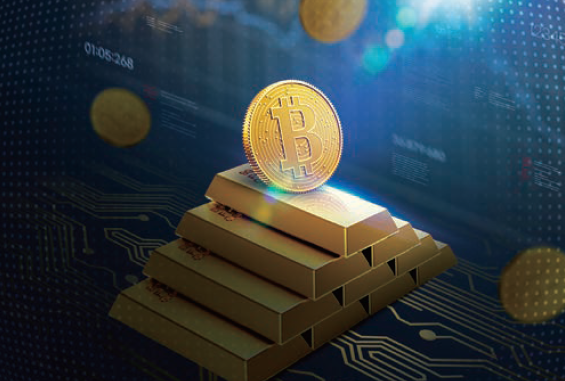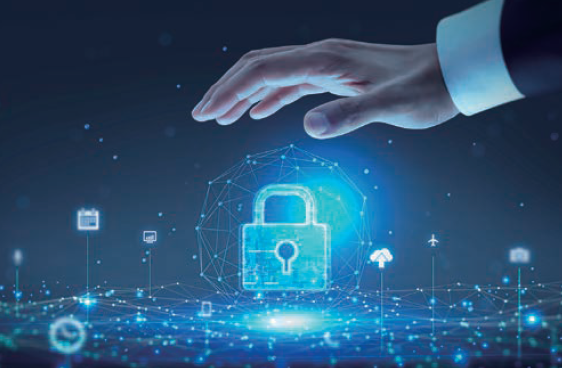Since Play to Earn (P2E) games are prohibited by law in Korea, many Korean players have felt left out. However, on October 13th, the Game Rating and Administration Committee (GRAC) announced that they would find ways to allow P2E games to keep pace with the rapid changes in the game industry. Therefore, the Sungkyun Times (SKT) would like to introduce the idea and features of P2E games and discuss some controversies and the future of the P2E game industry.
What are P2E Games?
All about P2E Games
Games that allow players to earn cryptocurrencies are referred to as “P2E games.” The P2E game business model differs from the Pay to Win (P2W) game business model; while players have to pay money to enjoy a P2W game fully, P2E games allow players to earn money. P2E games are closely intertwined with blockchain and non- fungible token (NFT) technologies. The term “blockchain” refers to a method of storing data that maintains a transparent ledger of all transactions. The P2E gaming sector also makes use of NFT technology to offer each digital item inherent worth. Players of P2E games that use NFT technology have the option of selling their virtual goods. For instance, gamers of Mir4, a P2E game that uses NFT technology, allows users to sell and buy game characters through a cryptocurrency exchange.
The Current P2E Game Industry Is...
It is common knowledge in the gaming business that the high adoption of NFTs translates to a low value for commodity money. Therefore, many users who openly accept NFTs tend to play P2E games for a living. According to an NFT Acceptance Report released by Finder, a market research institution, countries with the highest NFT acceptance include Southeast Asian countries such as the Philippines, Thailand, and Malaysia. Consequently, Netmarble’s P2E game Cross Worlds and WeMade’s Mir4 recorded the highest sales in Thailand and the Philippines. As many game developers are continually launching new P2E games, the game industry’s future will naturally focus on Southeast Asian countries. Conversely, P2E games are currently strictly restricted in Korea, making it impossible for Korean gamers to play them. GRAC regulations required that P2E games’ rating classifications be revoked, preventing their release. Korea and China are the only nations that refuse to grant authorization for P2E games, even though this sector of the gaming market is clearly expanding.

Problems P2E Games Must Resolve
The Possibility of Hacking Blockchain-Based P2E Games
P2E games, which use blockchain technology, are not entirely impervious to hacking, and there have frequently been reports of P2E games being compromised. In March, Axie Infinity was robbed of $625 million worth of cryptocurrency. Sky Mavis, the game developer of Axie Infinity, disclosed a security breach in their self- developed side chain, a subchain that facilitates easier interoperability between several blockchains. The primary advantage of blockchain- based games comes from their increased security, but this incident has damaged their reliability. Most P2E games use the same methods as Axie Infinity, which means they are not free from hacking. Kim Jung- tae, Professor of the School of Game at Dongyang University, said, “Although P2E games have the appearance and form of a game, their hacking incidents are very similar to bank robberies.” The aforementioned Axie Infinity disaster represents the greatest loss in decentralized financial networking history. Moreover, cryptocurrency is an easy way to launder money, and thus game developers can get into trouble by collecting stolen money. Sky Mavis could only recover roughly $30 million after the incident, and they anticipate it will take two years to fully recover.
Innovation Blocked by Regulations

A speculative game is one in which the player stands to gain or lose real estate based on the outcome of the game. As a result, gamers who win at games by chance constantly hope for luck and are prone to becoming game addicts. P2E games are claccified as speculative in Korea, and thus are restricted within the country. However, banning the entire P2E game sector, instead of implementing effective measures to combat addiction, hinders innovation. Popular Korean game developers declared that they would stop releasing new games for the Korean market and instead turn their focus abroad. Game makers typically release their games domestically first, allowing them to establish their servers and take into account player feedback. Only then do they expand to international markets. However, Korean developers are missing out on these opportunities, which may cause the Korean game market to decline compared to nations where the P2E game business is actively developing. The game industry estimates that P2E game sales reached $3.1 billion in 2022 and are predicted to expand rapidly — by around 140% annually — through 2025. The expansion of the Korean game business will be hampered if this high- potential industry is prohibited in Korea. Some experienced players even access detours over a virtual private network (VPN) to play the banned P2E games. However, it is against the law to play video games outside of Korean regulations. Due to Korea’s present ban on P2E games, proper speculative components cannot be made, which harms the Korean game industry.
What P2E Games Should Aim for the Bright Future
Efforts against Hacking
Governments and game producers should set specific countermeasures for the security of P2E games, as blockchain technology is not entirely secure against hacking. In September, the International Monetary Fund (IMF) highlighted the need for an establishment of laws in the cryptocurrency sector. Governments should set up suitable counterstrategies for hacking occurrences and expand the legislation to cover P2E games that use cryptocurrencies. On the other hand, game developers should routinely inspect their games by authorizing external audits or examining the credibility of the blockchain technology utilized to strengthen security. Developers should attempt to identify the causes of hacking incidences and immediately offer compensation to the consumers. For instance, Sky Mavis borrowed money in order to fully compensate affected players. Additionally, Sky Mavis collaborated with the Federal Bureau of Investigation (FBI) to identify the offender and learned that the hacker collective Lazarus was responsible. Therefore, game creators who create P2E games using blockchain technology should be more concerned with security and strive to identify the root causes of incidents and compensate for player losses.
Not Unconditional Prohibition, but Appropriate Regulation
A new analysis suggests that sorting P2E games into the category of speculative games is not appropriate. Jung Haesang, Professor of Law at Dankook University, claimed, “P2E games cannot be viewed as being speculative because players must perform a variety of tasks in order to make money while playing them. Thus, it is difficult to say that any profit gained is due to sheer luck.” Therefore, P2E games should be allowed in Korea with the appropriate level of oversight rather than their complete ban. P2E games are legal in Japan, but there are restrictions to protect players. For example, only NFT- recognized safelist coins are allowed in P2E games, and selling cryptocurrencies requires a license. Similarly, Korean game developers should create P2E games after obtaining a license and following the necessary legislation. Korean players’ input on P2E games would significantly improve their quality and speed up their development. According to research by the Ministry of Culture, Sports, and Tourism, Korea’s game industry is massive, ranking as the fourth largest in the global market; thus, both players and the industry will benefit if additional policies are implemented. Finally, users relying on VPNs will automatically vanish through these measures, allowing them to freely play games governed by Korean- specific restrictions. As a result, it would be preferable to implement applicable laws for P2E games rather than dismissing them as merely speculative.

P2E games are distinct from other games that allow for in- game currency. However, Korean players cannot play P2E games due to government policies. The P2E game market will be able to expand in Korea with the help of appropriate laws and better security. The SKT envisions a day when Korean gamers may enjoy P2E games, and the Korean P2E game industry is further developed.
